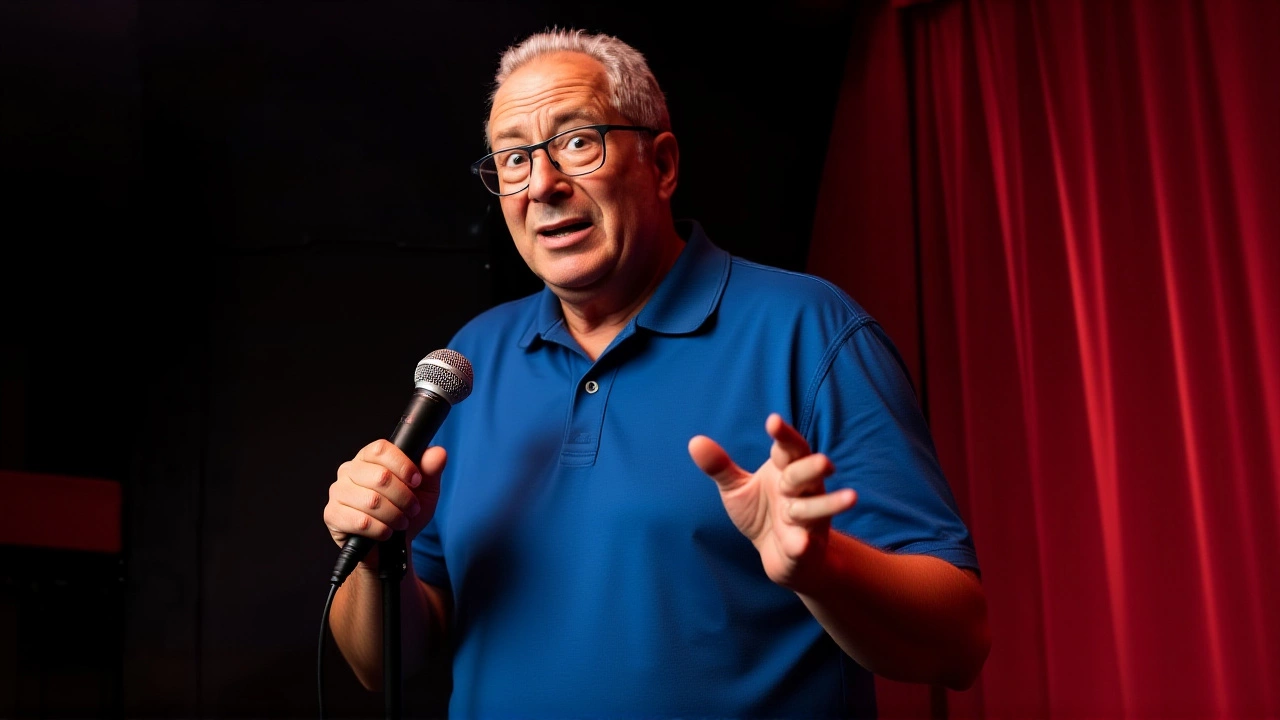When Ben Elton, comedian and writer stepped onto the stage of Nottingham Playhouse on , the air was thick with curiosity and a dash of apprehension. The 2½‑hour set, titled Authentic Stupidity, was part of a nationwide tour that put the veteran’s razor‑sharp wit against the backdrop of today’s identity‑politics minefield. Steve Bennett of Chortle posted his review the next day, noting that Elton described his own show as ‘a limp, wrinkly Caucasian scrotum of a show.’ The commentary sparked a fresh conversation about how legacy comedians navigate a cultural climate where a single misstep can feel career‑ending.
Why This Show Matters Now
Elton, often hailed as the ‘godfather of modern stand‑up’ by regional outlet LeftLion, framed his routine as a self‑portrait of a ‘white, middle‑aged, heterosexual man’ trying to stay relevant. In a world where humor is increasingly filtered through lenses of gender, race, and sexuality, his admission of being both a participant and a reluctant observer gave the audience a rare glimpse into the psyche of an industry veteran wrestling with change.
What the Critics Said
Bennett’s Chortle write‑up highlighted both the brilliance and the brittleness of the performance. He praised Elton’s timing, saying the comic’s "structure is masterly" and his physicality "restless" – a nod echoed by The Telegraph, whose headline mentioned the comedian’s “touring mullets long” while applauding his crisp phrasing.
- Elton’s opening gag likened his confidence in being funny to a “hate‑crime” if denied.
- He pleaded for patience from younger audiences, citing the challenge of shedding "centuries‑old orthodoxies."
- The review noted moments where the jokes felt “patchier” due to the performer’s self‑acknowledged uncertainty.
Even as Bennett wrote that Elton was “not as clued‑up as he’d hope to be,” he concluded that the comedian managed to “find laughs as he picks his way through the social minefield.”
How the Show Fit Into Nottingham Playhouse’s Season
The Nottingham Playhouse was in the thick of its 2019/20 calendar, sandwiching Elton’s gig between a family‑friendly run of The Very Hungry Caterpillar and the musical Assassins. The venue’s annual review lists a roster of high‑profile productions, backed by sponsors ranging from Sir Harry Djanogly to the Nottinghamshire County Council. The comedy slot added a sharper edge to a season otherwise dominated by classic theatre and children’s fare.
Audience Reaction on the Night
Tickets sold out quickly, and the crowd was a mix of longtime Elton fans and curious locals. Many laughed heartily at his self‑deprecating quips, while a handful whispered about the uncomfortable honesty of his commentary on privilege. In post‑show interviews, a 22‑year‑old university student said, “It felt like watching a man try to speak my language, even if he kept tripping over his own words.” Another attendee, a retired teacher, admitted, “I appreciated the honesty, even if I didn’t always agree with the jokes.”

Broader Cultural Implications
Elton’s performance arrives at a time when comedians such as Dave Chappelle and Sarah Silverman are also grappling with the balance between edgy humor and public scrutiny. The show serves as a case study for how legacy performers might re‑tool their material without alienating core audiences. Industry analysts suggest that tours like Authentic Stupidity could signal a new sub‑genre of “self‑reflexive” stand‑up, where the act itself becomes a commentary on the act.
What’s Next for Ben Elton?
Elton’s tour continued through the autumn, hitting venues in Manchester, Birmingham and London. Meanwhile, his co‑written musical We Will Rock You embarked on a separate UK run, proving the performer’s ability to juggle multiple creative ventures. In recent interviews, Elton hinted at a possible follow‑up show that would delve deeper into the “post‑pandemic identity shift,” suggesting he’s not done testing the waters of cultural relevance.
Historical Context: The Evolution of Political Comedy in the UK
British comedy has long oscillated between satire and social commentary. From John Cleese’s absurdist sketches in the 1970s to the politically charged stand‑ups of the 2000s, each era mirrors its social tensions. Elton, who first burst onto the scene with shows like Live at the Apollo in the early 1990s, embodies that evolution. His current material reflects a lineage that now includes internet‑fueled “cancel culture” debates, making his attempts at self‑scrutiny both a continuation and a departure from his earlier, more overtly political work.
Frequently Asked Questions
How did younger audiences respond to Elton’s jokes about identity politics?
Many younger viewers appreciated the candor but were split on the humor’s effectiveness. Some felt the jokes opened a dialogue, while others thought the self‑deprecation didn’t go far enough to address systemic issues.
What did the Nottingham Playhouse’s sponsors think about hosting the show?
Sponsorship statements emphasized the venue’s commitment to diverse programming. While they did not comment directly on the show's controversy, they highlighted the importance of offering “a range of artistic voices” to the community.
Is "Authentic Stupidity" Elton’s first foray into social‑commentary comedy?
No. Elton has long mixed humor with politics, notably in his 1995 BBC series The Ben Elton Show. However, this tour marks a more explicit focus on his personal identity and generational divides.
What impact might the review have on future stand‑up tours?
Critics like Bennett and outlets such as The Telegraph provide a benchmark for how legacy acts are received. Positive notes on timing and structure may encourage other seasoned comedians to experiment with self‑reflective material, while the “patchy” feedback underscores the risk of misreading contemporary sensibilities.
Will Elton’s next show address post‑pandemic cultural shifts?
Elton hinted at a follow‑up tour that will explore how the pandemic reshaped public discourse. Though details are scarce, he suggests the new material will blend his trademark satire with observations about a society emerging from lockdown.
